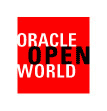Oracle Open World
Registration to the Oracle Open world is currently open at
http://www.oracle.com/openworld/attendees/register/index.html
Actually it would have been there a couple of months back notice it today so thought of putting up a mention to it.
And if you are planning to attend it you can register now and grab those early bird discounts that are being offered.
Its going to be a exciting event to look forward to with more than 1400 session planned between October 22-26
If you want to browse through at what’s being offered go through the content catalog at
http://www28.cplan.com/cc139/catalog.jsp
Going through could not help notice that Sir Elton John would be performing live during the OOW, that’s nice.. if you enjoy that kind of music that is...
There are also some special programs and partner activities on the menu
Don’t miss it.. :)
Monday, July 31, 2006
Generic Service Management
This will be my first post.. I thought of talking about some kind of 11i architecture of basics but decided to blog about GSM. GSM stands for Generic Service Management a new feature introduced from version 11.5.7 onwards..
The basic idea behind GSM is provide a framework to centrally manage various Oracle Application process spread across different nodes.
Oracle describes the GSM as an extension of concurrent processing.
So how does it work ? With invent of GSM , the Internal Concurrent Manager (ICM) which traditionally was responsible to manage the concurrent mangers now extents itself to the role of managing and monitoring various applications services across various nodes. These services include Oracle Forms Listener, Oracle Reports Server, Apache Web listener, Oracle Workflow Mailer etc.
Apart from managing and monitoring the services GSM provides a fault tolerance by attempting to start any services that have exited unexpectedly
GSM Setup
Manual setup of GSM is required only if you are using Oracle Applications prior to 11.5.7, in the later releases GSM is already setup though you can choose to disable it.
Information about the nodes is started at the database level in a table FND_NODES.
GSM uses the ping command to check the availability of the nodes so its essential to have the Oracle applications user like applmgr to be able ping to the various application nodes for GSM to function.
The Metalink Note 210062.1 talks about GSM configuring and trouble shooting in an Oracle Applications environment.
Posted by
Sam
at
12:25 AM
1 comments
![]()
Labels: Technology Features